By Jeff Field | Published November 14, 2023 | Posted in Bankruptcy | Tagged Tags: section 341 meeting, trustee, Zoom | Leave a comment

Creditors’ Meetings in Bankruptcy Cases Are Now Held Online
Soon after you file a Chapter 7 bankruptcy petition, you will be required to attend a creditors’ meeting. Its purpose is to verify the accuracy of the information in your filings and to determine if there is anything that would make you ineligible for debt relief. Creditors’ meetings —also known as Section 341 meetings — Read More
Read More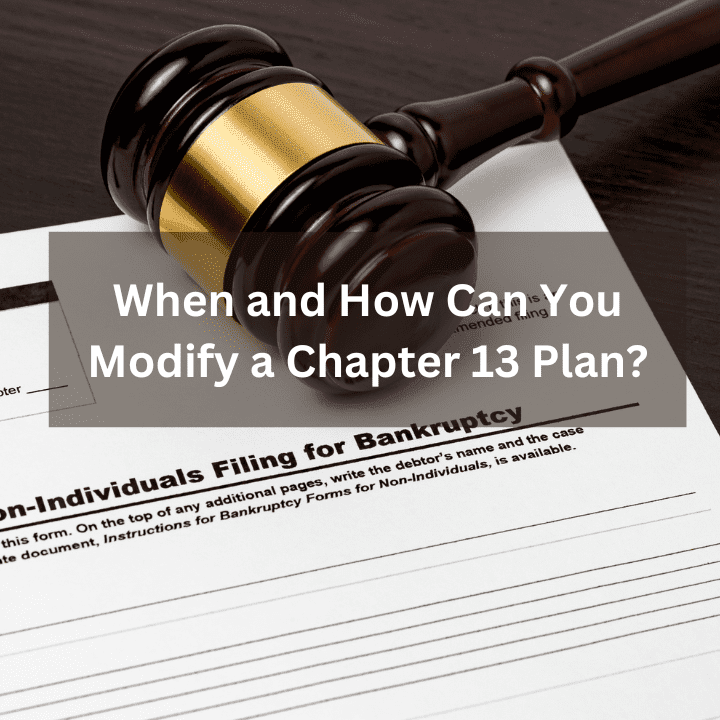
When and How Can You Modify a Chapter 13 Plan?
Chapter 13 bankruptcy is a powerful tool for people who are struggling with insurmountable debt. It allows you to pay off your unsecured debts monthly over a period of three or five years, and at the end of your repayment plan, the remaining debts will be discharged. The size of your monthly payment is based Read More
Read More
Ways to Quickly Start Rebuilding Your Credit Score After Chapter 7
A Chapter 7 bankruptcy can be an effective remedy for people who are struggling with overwhelming debt. A bankruptcy filing initially hurts your credit score, but once you’ve received your discharge of debt, you can start to repair your credit score. A Chapter 7 stays on your credit report for 10 years. However, the impact Read More
Read More
Dangers of Using Mortgage Relief Agencies to Fight Foreclosure
If you are facing mortgage default or foreclosure, you may be aware of mortgage relief companies that claim to provide homeowners with ways to keep their property, refinance or modify their mortgages, repair their credit or simply buy time to stave off debt problems. However, many of these options are scams that cause debtors to Read More
Read More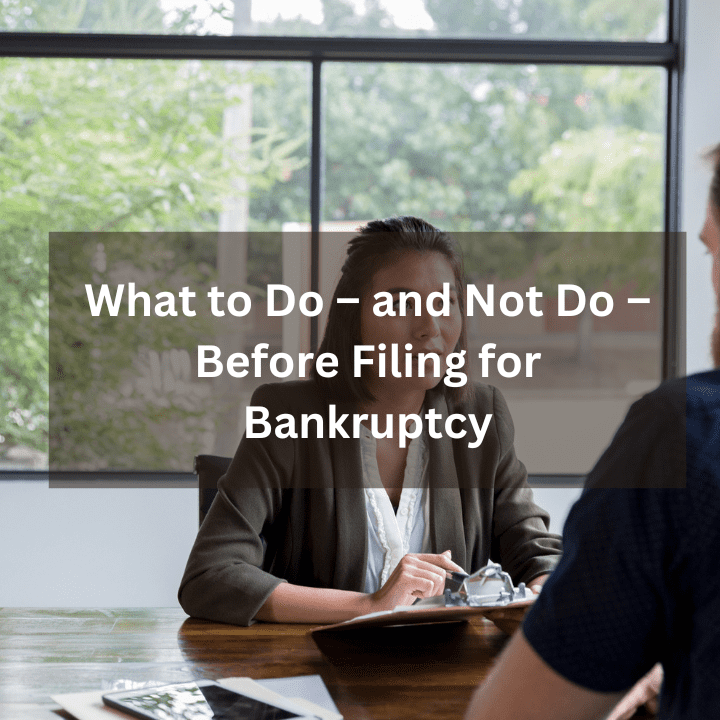
What to Do – and Not Do – Before Filing for Bankruptcy
Bankruptcy is a legal process that allows individuals and businesses to discharge their debts. It can be a complex and daunting process, but it can be a lifesaver for those who are struggling to make ends meet. Like any court proceeding, a bankruptcy requires careful preparation. It’s equally important to avoid mistakes that can undercut Read More
Read More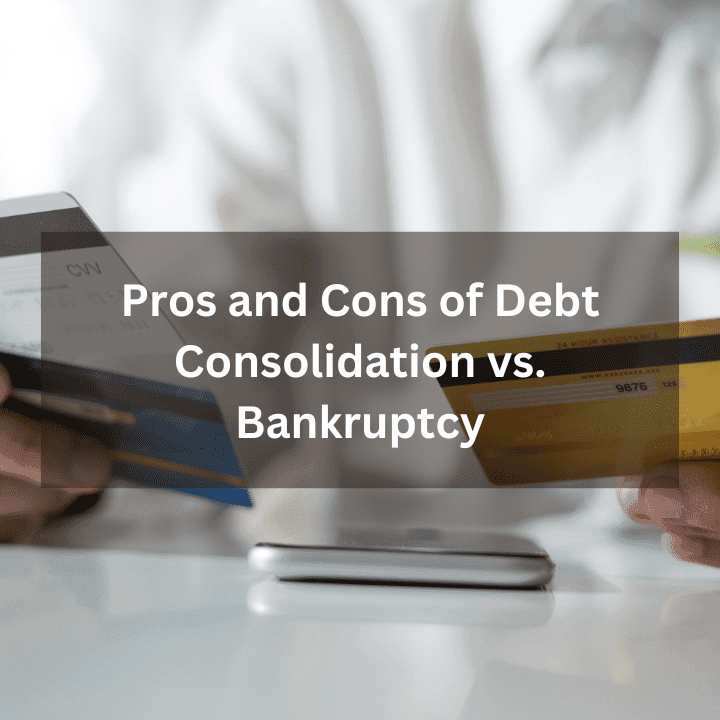
Pros and Cons of Debt Consolidation vs. Bankruptcy
If you are having trouble paying your creditors, you might consider either debt consolidation or bankruptcy. One of these remedies makes use of the court and lawyers (bankruptcy), while the other is entirely private (debt consolidation). The goal is the same, but the paths are distinct. Debt consolidation creates one new loan (or line of Read More
Read More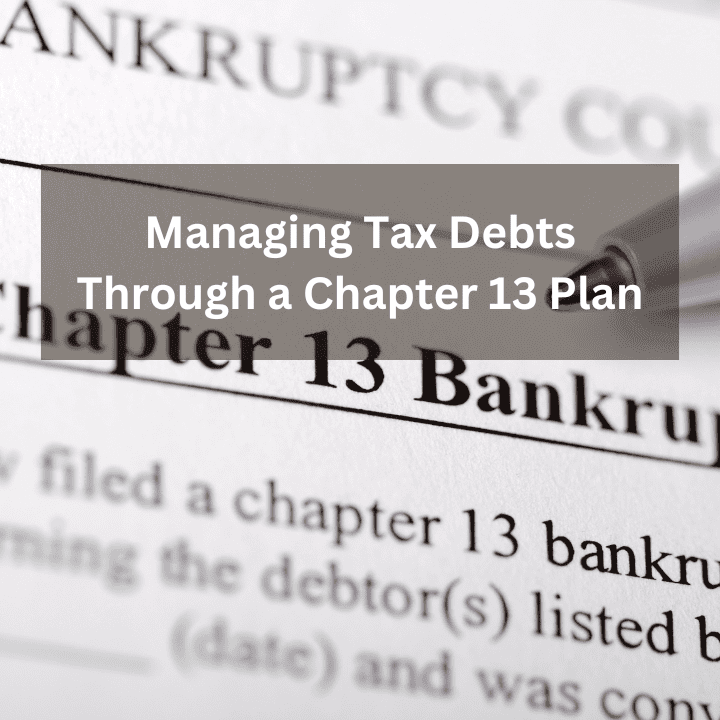
Managing Tax Debts Through a Chapter 13 Plan
A Chapter 13 bankruptcy may allow you to eliminate a sizable portion of your outstanding debt. In some cases you pay off a relatively small amount of unsecured debts, with the remainder being discharged. However, tax debts are generally not eligible for reduction and discharge. With a few exceptions, they must be paid in full. Read More
Read More
When Can a Creditor Get Relief from the Bankruptcy Automatic Stay?
The day you file a Chapter 7 or Chapter 13 case with the bankruptcy court, an automatic stay is imposed that requires your creditors to cease their collection practices. The stay prohibits phone calls, letters, lawsuits, wage garnishments and executions on property, such as mortgage foreclosures. The court can impose penalties such as attorneys’ fees, Read More
Read More
Using Chapter 13 to Stop Foreclosure
Chapter 13 is a form of bankruptcy that allows you to restructure your outstanding debts for repayment over an extended period of time. This includes defaulted home mortgage loans that are in the process of foreclosure. If you meet the eligibility requirements for Chapter 13, you can put a hold on the foreclosure, buy yourself Read More
Read More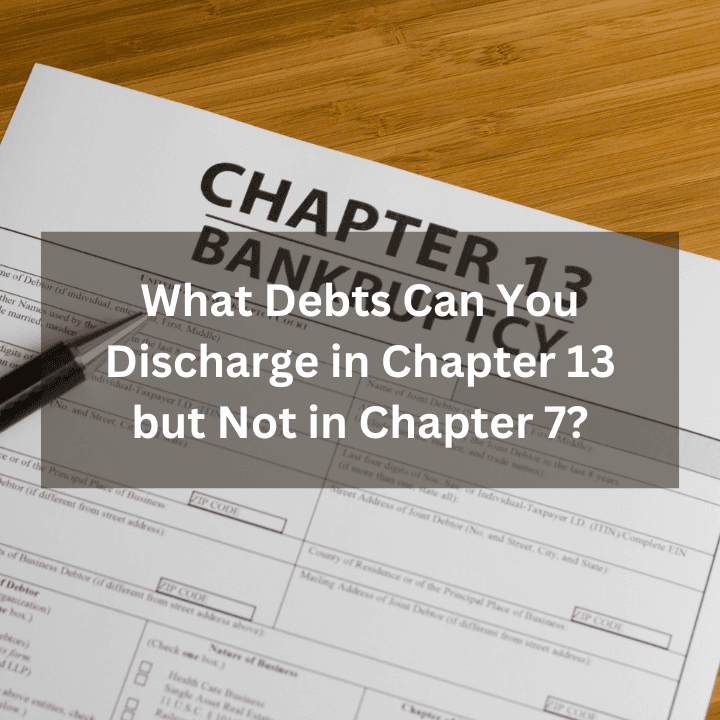
What Debts Can You Discharge in Chapter 13 but Not in Chapter 7?
People with unmanageable debt loads often turn to bankruptcy for relief. Most of them proceed using either Chapter 7 or Chapter 13 of the bankruptcy code, which set out different paths for discharging the individual’s debt. One notable difference is that Chapter 13 requires partial repayment of outstanding debt. However, an advantage of Chapter 13 Read More
Read More- April 2024
- March 2024
- February 2024
- January 2024
- December 2023
- November 2023
- October 2023
- September 2023
- August 2023
- July 2023
- June 2023
- May 2023
- April 2023
- March 2023
- February 2023
- January 2023
- December 2022
- November 2022
- October 2022
- September 2022
- August 2022
- July 2022
- June 2022
- May 2022
- April 2022
- March 2022
- February 2022
- January 2022
- December 2021
- November 2021
- October 2021
- September 2021
- August 2021
- July 2021
- June 2021
- May 2021
- April 2021
- February 2021
- January 2021
- December 2020
- November 2020
- October 2020
- September 2020
- August 2020
- July 2020
- June 2020
- May 2020
- April 2020
- March 2020
- February 2020
- January 2020
- December 2019
- November 2019
- October 2019
- September 2019
- August 2019
- July 2019
- June 2019
- May 2019
- April 2019
- March 2019
- February 2019
- January 2019
- December 2018
- November 2018
- October 2018
- June 2017
- May 2017
- May 2016
- April 2016
- March 2016
- February 2016
- January 2016
- December 2015
- October 2015
- September 2015
- August 2015
- July 2015
- June 2015
- January 2015
- July 2014
- May 2014
- April 2014
- March 2014
- February 2014
- January 2014
- September 2013
- August 2013
- July 2013
- April 2013
Please fill out the form below and one of our attorneys will contact you.


